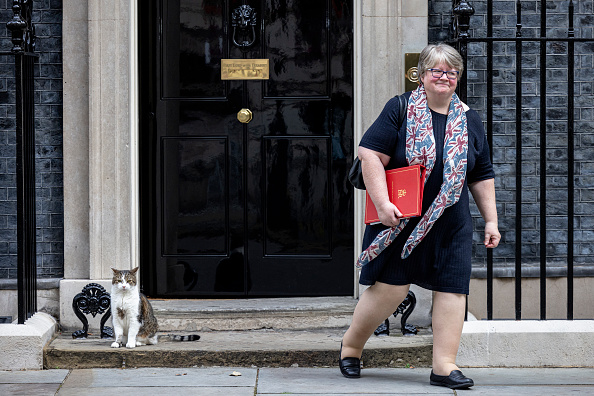Britain’s dentistry woes are creating a health tourism boom for Turkey

Walking on the streets of Istanbul, it’s easy to spot men with bandaged heads, or women with covered noses. Turkey is a huge destination for health tourism, especially for hair transplants and nose jobs. The services are often offered in a package, together with flights and hotels.
You might wonder, what newly-hairy men in Istanbul has to do with the Health Secretary, Therese Coffey. But last week, she finally promised to tackle a problem given little airtime among the litany of catastrophes facing the NHS: dentistry.
In Turkey, the health tourism sector is making a quiet killing from Britain’s failure to provide affordable dentistry. While free dentistry through the health service is only available for those under 18-years-old and other specific circumstances, medical dental treatment is available at a cheaper price than in a private clinic.
Britain hardly has a reputation for stellar teeth, but the problem is quickly worsening, with nine in ten NHS dental practices across the country not accepting new adult patients for treatment, according to recent figures. People are in so much pain they’re pulling out their teeth at home. Private treatment is out of reach for many, especially during a severe cost-of-living crisis.
Coffey promised to come up with a plan to incentivise dentists to take on more NHS work, and streamline routes into dentistry for people trained abroad, so that more dentists are available here at home.
But in the meantime, many are turning eastward to get treatment. What used to be a trend for those who wanted “the perfect smile” or brighter teeth is now also being adopted by people who need medical treatment. Flying and staying in another country has become cheaper than getting an operation done in the UK. Clinics have started to mushroom in and out of Istanbul – Dentakay is one of them.
In 2019, 15 people came from the UK to Turkey to receive treatment in a Dentakay hospital. By the end of 2022, Dentakay expects this number to be 1,470. Seventy per cent of Dentakay patients come from the UK. The dentistry firm is even looking at opening up a free consultation service in London.
Given the acute inaccessibility of dental services under the NHS, people turn to private services. But the difference in prices is huge: on average, tooth extraction in the UK costs you around £166, while at Dentakay is £60. Root canal treatment – used to treat infection at the centre of a tooth – is £120 in Turkey and £1,665 in the UK.
Low prices can be explained by lower lab and human resources costs.
Bernice Philips had 8 implants and 15 crowns done in July with Dentakay. She resorted to the Turkish clinic after the NHS said her teeth “were not in a bad enough state” to justify the operations, and that it would have been very hard to do it as she had gum issues and bad bone density. “It’s sad to think you have to go to another country to get this treatment”, she says.
The British Dental Association is worried about what happens after, when people come back to the UK. In a survey of 1000 British dentists, 86 per cent reported having treated cases that developed problems following treatment abroad. “Sadly, many UK dentists are now picking up the pieces when things go wrong”, says Eddie Crouch, chair of the British Dental Association.
On social media, there are dozens of posts from these clinics touting the “perfect smile”. But anyone who’s been to the dentist more than a couple of times knows that it’s hardly ever as easy as that. Several follow-up visits are usually needed, especially for the most invasive operations. How do you get that level of care when your doctor is in another country?
“It seems as if the problems many of our patients have accessing care on the NHS will not be solved in the immediate future”, says Dr Gulay Akay, Dentakay’s founder. She has seen people coming from the UK to her clinic with their teeth on the point of falling out because they hadn’t received treatment in so long. She is probably right; but not every Turkish clinic will have her’ standards, and some British dentists question whether the NHS should provide care for failed treatment from abroad.
More awareness about the potential risks of getting dental treatment abroad is needed to protect all of those who might not be as lucky as Bernice. But in the long-term, we can only hope the UK becomes a country that can provide affordable care to its people – instead of outsourcing it.